Table of Contents
Shiitake Mushrooms: Nutrient-Packed Fungi with Powerful Health Benefits
Shiitake mushrooms have long been cherished for their culinary uses and medicinal properties. Originating from East Asia, these mushrooms have a rich history in traditional medicine, especially in Chinese and Japanese cultures. Shiitake mushrooms, scientifically known as Lentinula edodes, are not only delicious but also offer an array of health benefits, from boosting the immune system to promoting heart health. In this blog, we will explore the history, nutritional content, health benefits, and the best ways to incorporate shiitake mushrooms into your diet.
This site contains affiliate links, and I may receive a commission on purchases made through them. Please see our Affiliate Disclosure for more details.

Historical Significance
Ancient Use
Shiitake mushrooms have been used in East Asia for over 1,000 years, first cultivated in the mountains of China. The name “shiitake” comes from the Japanese words “shii”, meaning a tree similar to oak, and “take”, meaning mushroom. These mushrooms naturally grow on decaying logs and hardwood trees, and they were traditionally harvested by hand from the wild.
Ancient Chinese medical texts dating back to the Ming Dynasty (1368–1644) highlight the medicinal value of shiitake mushrooms, particularly for treating respiratory and liver problems. Shiitake was known as the “elixir of life” and thought to promote longevity. It was also used to treat colds, improve circulation, and enhance overall vitality. Shiitake’s medicinal uses spread to Japan, where it became revered as a health-boosting food.
Cultural Importance
In both China and Japan, shiitake mushrooms are associated with good health and long life. In Japanese culture, they were prized not only as a culinary delicacy but also as a potent natural medicine. The mushroom’s role in Traditional Chinese Medicine (TCM) focused on its ability to strengthen the immune system and improve energy flow, known as “qi”.
Shiitake is still a staple in Asian cuisines today, used in everything from soups and stir-fries to sauces and broths. Beyond its culinary appeal, shiitake continues to be valued for its healing properties, making it one of the most popular mushrooms in both traditional and modern herbal medicine.
Global Spread
Over the last century, shiitake mushrooms have gained global popularity due to their rich flavor and impressive health benefits. Through trade and increased culinary exchange, shiitake mushrooms have become widely available, with commercial cultivation in North America and Europe. Shiitake has found its place in both gourmet cuisine and health-conscious diets around the world.
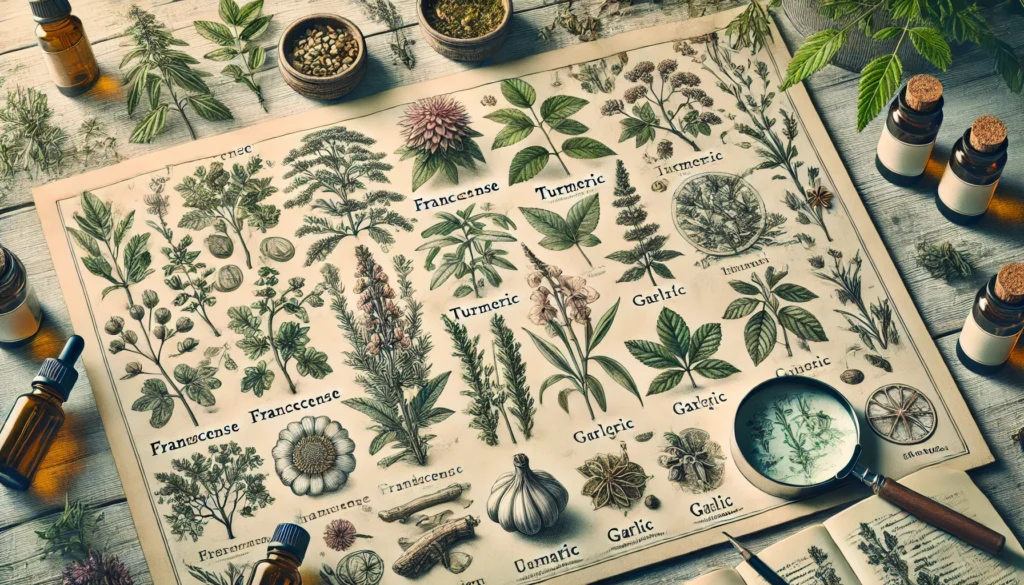
Botanical Profile
Species Overview
The shiitake mushroom belongs to the species Lentinula edodes, part of the Basidiomycota phylum of fungi. Shiitake mushrooms are instantly recognizable by their rich brown caps, which can range in color from light tan to deep brown. The caps are typically 2 to 4 inches in diameter, with a smooth, slightly curved shape. The gills underneath the cap are off-white, and the stem is often tough, making it less commonly used in cooking.
Growing Conditions
Shiitake mushrooms thrive in moist, forested environments, growing on decaying hardwood trees like oak and chestnut. They are saprophytic, meaning they feed on dead organic matter. Traditionally, shiitake mushrooms were foraged from the wild, but modern cultivation has made them widely available year-round.
Shiitake cultivation typically involves inoculating logs or sawdust blocks with mushroom spores. The logs are kept in cool, humid conditions to encourage growth. After a few months, the mushrooms begin to fruit, and they can be harvested several times from the same log. This sustainable growing method allows for high yields of this nutrient-packed fungus.
Varieties of Shiitake
There are different strains of shiitake mushrooms, each with its own distinct characteristics. The two most well-known varieties are:
- Donko Shiitake: This variety has a thick, round cap and is harvested when it is still immature. It is prized for its dense texture and rich flavor, making it a popular choice for gourmet dishes.
- Koshin Shiitake: This variety is harvested when the cap has fully opened, giving it a lighter, more delicate texture. Koshin shiitake mushrooms are often used in soups and stir-fries for their mild, umami flavor.
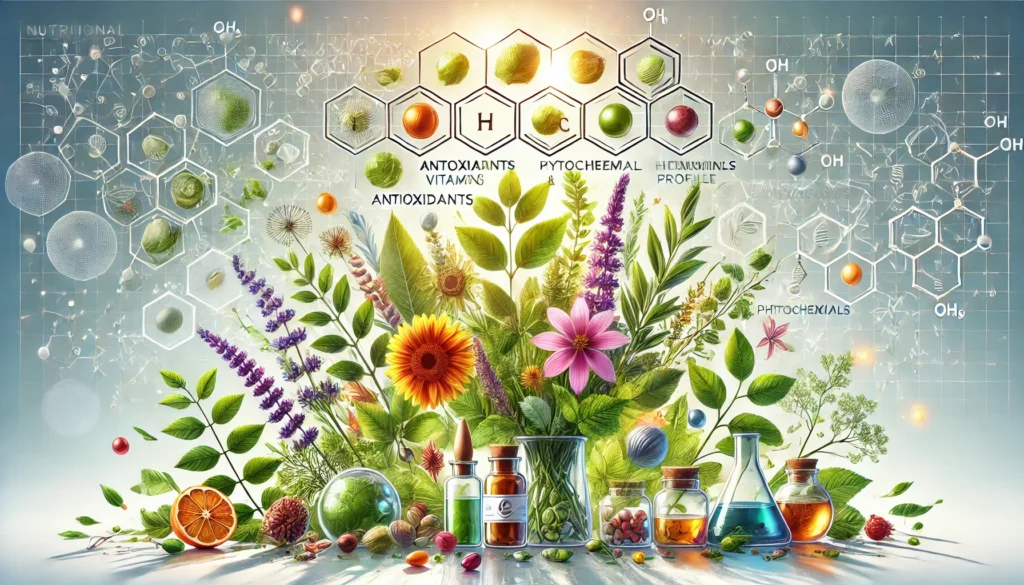
Nutritional and Phytochemical Profile
Nutritional Content
Shiitake mushrooms are a powerhouse of nutrients, making them a valuable addition to any diet. They are low in calories but rich in essential vitamins and minerals, including:
- Protein: Shiitake mushrooms are a good source of plant-based protein, making them an excellent option for vegetarians and vegans.
- Fiber: Shiitake contains both soluble and insoluble fiber, which helps with digestion and promotes gut health.
- B Vitamins: Shiitake mushrooms are particularly rich in B vitamins such as B2 (riboflavin), B5 (pantothenic acid), and B6 (pyridoxine). These vitamins play a crucial role in energy production, brain function, and maintaining healthy skin.
- Vitamin D: Shiitake mushrooms are one of the few plant sources of vitamin D. When exposed to sunlight, they produce vitamin D2, which helps with calcium absorption and bone health.
- Minerals: They are also a good source of copper, selenium, manganese, and zinc, all of which are essential for maintaining a healthy immune system, skin, and brain function.
Phytochemicals
Shiitake mushrooms contain several bioactive compounds that contribute to their medicinal properties. The most notable are:
- Lentinan: A polysaccharide that enhances the immune system and has shown potential in cancer treatments.
- Ergothioneine: A powerful antioxidant that protects cells from oxidative stress and reduces inflammation.
- Beta-glucans: These are polysaccharides that help modulate the immune system and support heart health.
Other Active Compounds
Shiitake mushrooms also contain other compounds, such as sterols and eritadenine, which support cardiovascular health by lowering cholesterol levels and improving blood pressure regulation.
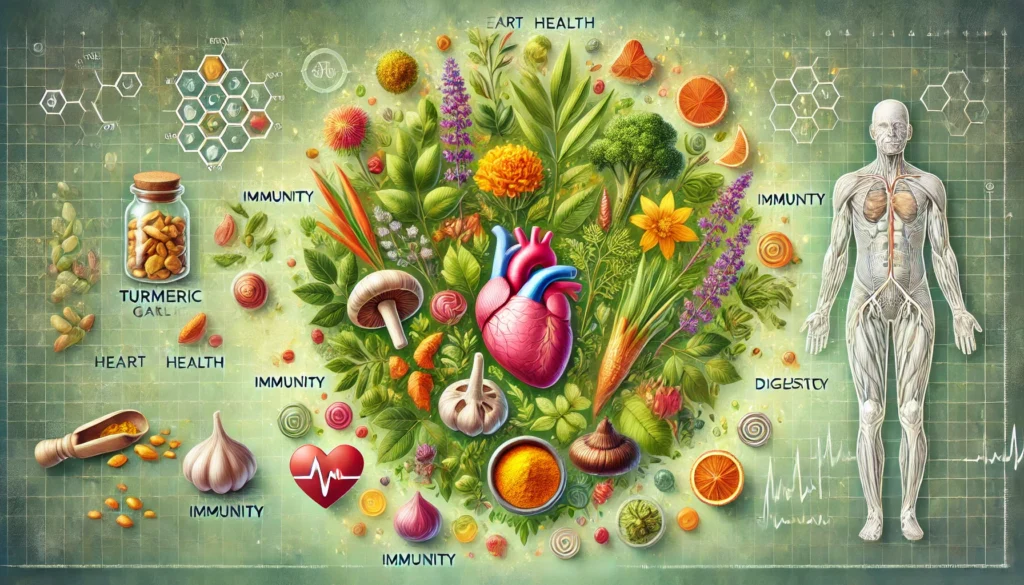
Health Benefits of Shiitake Mushrooms
The health benefits of shiitake mushrooms are wide-ranging, thanks to their rich nutritional and phytochemical profile.
Immune System Support
Shiitake mushrooms are best known for their immune-boosting properties, largely due to the presence of lentinan and beta-glucans. These compounds help enhance the activity of immune cells, making the body more effective at fighting off infections. Studies have shown that regular consumption of shiitake mushrooms can improve immune function and reduce the severity of illnesses like the flu and the common cold.
Heart Health
Shiitake mushrooms support cardiovascular health in several ways. Eritadenine, a compound found in shiitake, helps lower cholesterol levels by inhibiting the absorption of cholesterol in the bloodstream. Additionally, the beta-glucans in shiitake help reduce blood pressure and improve circulation, reducing the risk of heart disease.
Anti-Cancer Properties
Lentinan, a unique polysaccharide found in shiitake mushrooms, has shown potential in cancer research. Studies suggest that lentinan may help slow the growth of cancer cells and improve the effectiveness of chemotherapy by enhancing the body’s immune response. Shiitake’s ability to reduce inflammation and oxidative stress also plays a role in its anti-cancer properties.
Antioxidant Power
Shiitake mushrooms are rich in ergothioneine and selenium, both of which are potent antioxidants. These compounds help protect cells from damage caused by free radicals, reducing the risk of chronic diseases like heart disease and cancer. Antioxidants also support overall health by reducing inflammation and promoting healthy aging.
Skin and Anti-Aging
Shiitake mushrooms are often used in skincare products due to their high antioxidant content and their ability to promote collagen production. Collagen is essential for maintaining skin elasticity and reducing the appearance of wrinkles. Regular consumption of shiitake mushrooms can also help protect the skin from damage caused by environmental factors like UV rays and pollution.
Digestive Health
Shiitake mushrooms are high in dietary fiber, which promotes healthy digestion and supports the growth of beneficial gut bacteria. The polysaccharides in shiitake also have prebiotic properties, meaning they provide food for the good bacteria in the gut, helping maintain a healthy balance in the digestive system.
Brain Health
The B vitamins in shiitake mushrooms, particularly B6 and B12, are crucial for maintaining cognitive function. These vitamins support brain health by promoting the production of neurotransmitters that regulate mood and memory. The antioxidant properties of shiitake also help protect brain cells from oxidative stress, reducing the risk of neurodegenerative diseases like Alzheimer’s and Parkinson’s.
Energy Boost
Shiitake mushrooms are a rich source of B vitamins, which are essential for converting food into energy. This makes shiitake an excellent addition to the diet for those looking to boost energy levels and reduce fatigue.
Bone Health
Shiitake mushrooms are one of the few plant sources of vitamin D, which is essential for bone health. Vitamin D helps the body absorb calcium, supporting strong bones and reducing the risk of osteoporosis.
Anti-Inflammatory Effects
Shiitake mushrooms have natural anti-inflammatory properties, which help reduce inflammation throughout the body. This makes them beneficial for people suffering from chronic inflammatory conditions like arthritis, as well as those looking to improve joint and tissue health.
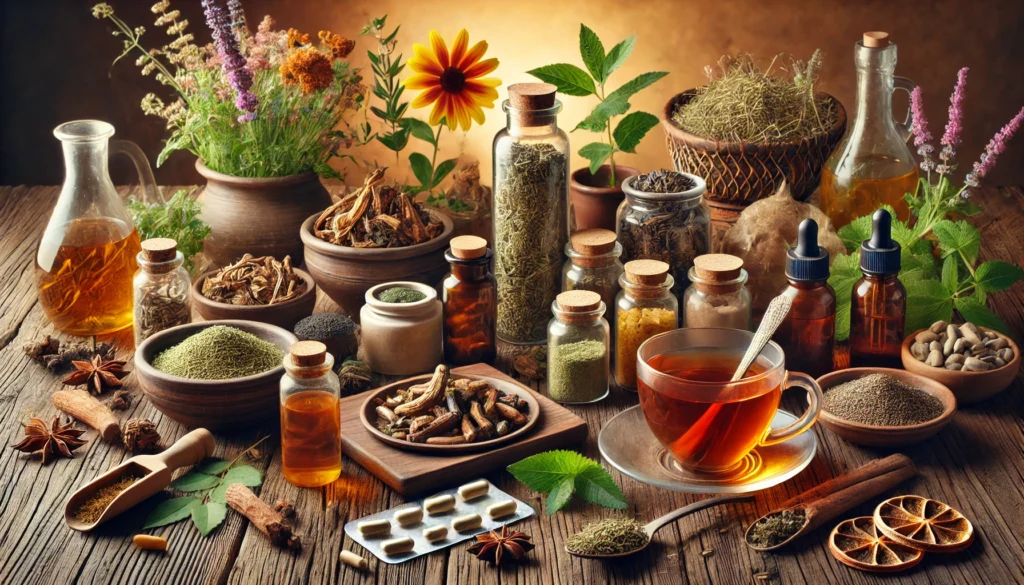
Methods of Consumption
Shiitake mushrooms can be enjoyed in various forms, each offering its own unique health benefits.
Fresh and Dried Shiitake Mushrooms
Fresh shiitake mushrooms are delicious and versatile. They can be sautéed, grilled, or added to soups, stir-fries, and pasta dishes. Their meaty texture and umami flavor make them a great substitute for meat in vegetarian dishes. To prepare fresh shiitake, remove the tough stems and slice the caps before cooking.
Dried shiitake mushrooms are commonly used in broths, soups, and stews. They have a concentrated flavor that adds depth to dishes. To use dried shiitake, soak them in warm water for 20-30 minutes to rehydrate before cooking. The soaking liquid can also be used as a flavorful broth.
Shiitake Powder
Shiitake powder is a convenient way to add the health benefits of shiitake to your diet. It can be sprinkled into smoothies, soups, or sauces, providing a concentrated dose of nutrients and antioxidants. Shiitake powder is also a great option for those who don’t enjoy the texture of whole mushrooms.
Shiitake Extracts and Supplements
Shiitake supplements, including capsules and tinctures, offer a concentrated source of lentinan and beta-glucans. These supplements are typically used to boost immune function or support heart health. Look for high-quality supplements that are standardized for active compounds like lentinan.
Shiitake in Cooking
Shiitake mushrooms are a staple in Asian cuisine, often used in dishes like miso soup, ramen, and stir-fries. Their earthy, savory flavor pairs well with ingredients like garlic, ginger, and soy sauce. Shiitake can also be grilled or roasted and served as a side dish or topping for salads.
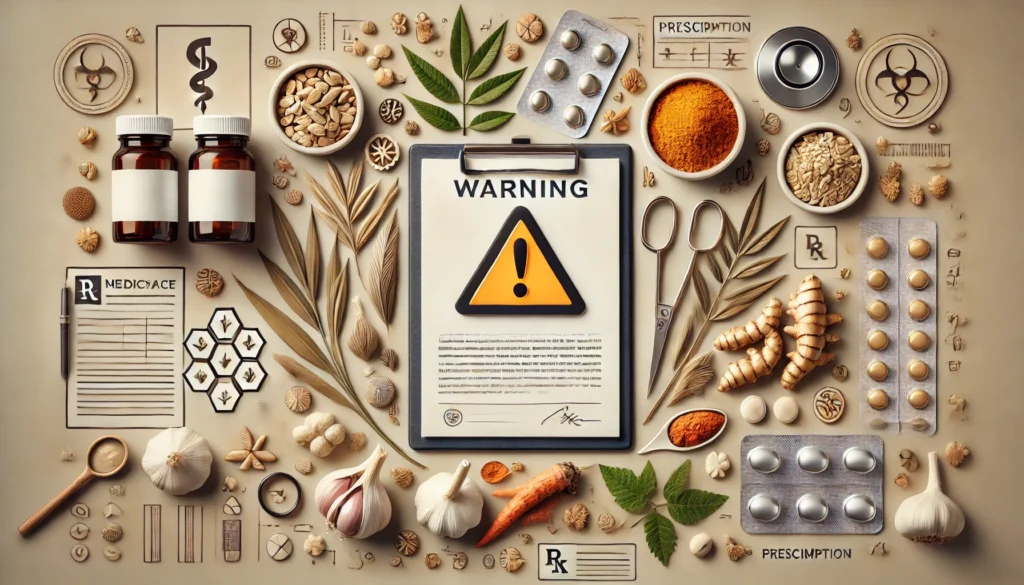
Cautionary Advice
While shiitake mushrooms are generally safe for most people, there are a few precautions to consider.
Potential Side Effects
In rare cases, people may develop shiitake dermatitis, a skin reaction that occurs after consuming or handling raw shiitake mushrooms. This condition causes a rash or itching and usually resolves on its own. Cooking shiitake mushrooms thoroughly can help prevent this reaction.
Medication Interactions
Shiitake mushrooms have immune-boosting properties, so they may interact with medications that suppress the immune system, such as those used in autoimmune conditions or after organ transplants. If you are taking immune-modulating medications, consult your healthcare provider before consuming shiitake in large amounts or taking supplements.
Allergies
Although rare, some individuals may be allergic to shiitake mushrooms. Symptoms may include swelling, itching, or difficulty breathing. If you experience any signs of an allergic reaction, discontinue use and seek medical advice.
Safe Dosage
For general health benefits, consuming 2-3 shiitake mushrooms per day or 500-1,000 mg of shiitake extract in supplement form is considered safe. If using supplements, follow the recommended dosage on the label.
Pregnancy and Nursing
Shiitake mushrooms are generally considered safe for pregnant and nursing women when consumed in culinary amounts. However, if you are considering taking shiitake supplements, it’s best to consult your healthcare provider for personalized advice.

Conclusion
Shiitake mushrooms are not only a flavorful addition to your meals but also a powerful natural remedy for boosting health. From strengthening the immune system and supporting heart health to promoting skin vitality and reducing inflammation, shiitake mushrooms offer a wealth of benefits.
Whether you enjoy them fresh, dried, or in supplement form, shiitake mushrooms can be easily incorporated into your daily routine. Explore the many culinary possibilities and experience the numerous health benefits that these nutrient-packed mushrooms provide.
